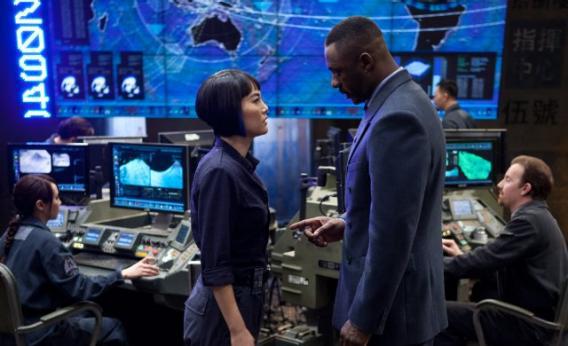Across the Web—or at least across the U.S.-based, English-speaking part of it—those lamenting the state of the Hollywood blockbuster seem to be pointing their fingers at one factor above all others this week: Hollywood’s “overreliance on foreign box office.”
A post on the Atlantic calls this one of the key factors in “the Economics of Awful Blockbuster Movies.” Over at Flavorwire, Jason Bailey highlights a chart of foreign vs. domestic box office made for that Atlantic article as one of the key charts “to make you sad about movies.” At Pitchfork’s new movies site the Dissolve, Matt Singer pleads for no more bad American accents, then wonders whether it’s part of the larger problem that “movies made for a global audience put spectacle at a premium over everything else.”
Certainly there’s some truth to this conventional wisdom. As the Atlantic sums it, explosions tend to translate better than regional nuances, and some humor won’t translate at all. Similarly, while a major star can be as big a draw abroad as at home (and sometimes bigger), in some foreign-language markets much of their performance is dubbed over.
But these changing market dynamics also have an upside that’s gotten much less attention: They offer the incentive to make use of more diverse casts, and to tell more stories whose heroes aren’t exclusively American.
Take Pacific Rim, which turns this supposed weakness into a strength. While the movie’s principal protagonist is an American played by English actor Charlie Hunnam—the United States, after all, still represents the largest single market for Hollywood blockbusters—its other stars and characters are from all over the map. The commander of the resistance is an Englishman played by black English actor Idris Elba. The hero’s partner is fellow ranger and pilot Mako Mori, a Japanese woman played by actress Rinko Kikuchi. (You might know Kikuchi from another international effort, Babel.) The other pilots consist of a Russian duo, an Australian father and son, and a set of Chinese triplets.
You could choose to view this as “pandering”—the Atlantic’s Pacific Rim review flirts with doing just that—and it’s true that some films’ efforts to appeal to international audiences have been ham-fisted. Iron Man 3 even went so far as to add a few minutes of extra footage for a special Chinese version, to shoehorn in a character named Dr. Wu. (The character appears for only 10 seconds in the international version, but in the China-only cut Tony Stark finds himself suddenly in need of Chinese healthcare, with Dr. Wu the only one who can perform the operation.) The patronizing additions were widely mocked, with China’s People’s Daily calling the addition “terrible,” and “pointless.”
But there’s a simpler, less cynical answer: Perhaps director Guillermo Del Toro saw an opportunity to make another movie that wasn’t just about American exceptionalism, a blockbuster that wasn’t just about more (usually white) American men saving the world. He is, after all, Mexican, and has said that the movie is “permeated by the fact that I am Mexican.” Here’s how he explained the way the cast of characters came together:
The main drive behind that was that I didn’t want it to be a single country saving the Earth. … I wanted to have people from every race, color, creed possible coming together to work as a unit. You know, I felt that it was very important to have the charismatic leader be played by Idris Elba, rather than the usual sort of WASP-y, 40-ish, sergeant type.
In an interview with the Boston Globe, he expanded on that same idea, explaining that “the idea of the movie is just for us to trust each other, to cross over barriers of color, sex, beliefs, whatever, and just stick together.” He added that he “didn’t want this to be a recruitment ad or anything jingoistic,” which is still how too many of these blockbusters play. (I’m looking at you, Battleship.) To subvert that standard may be good business, but it’s also good storytelling.
